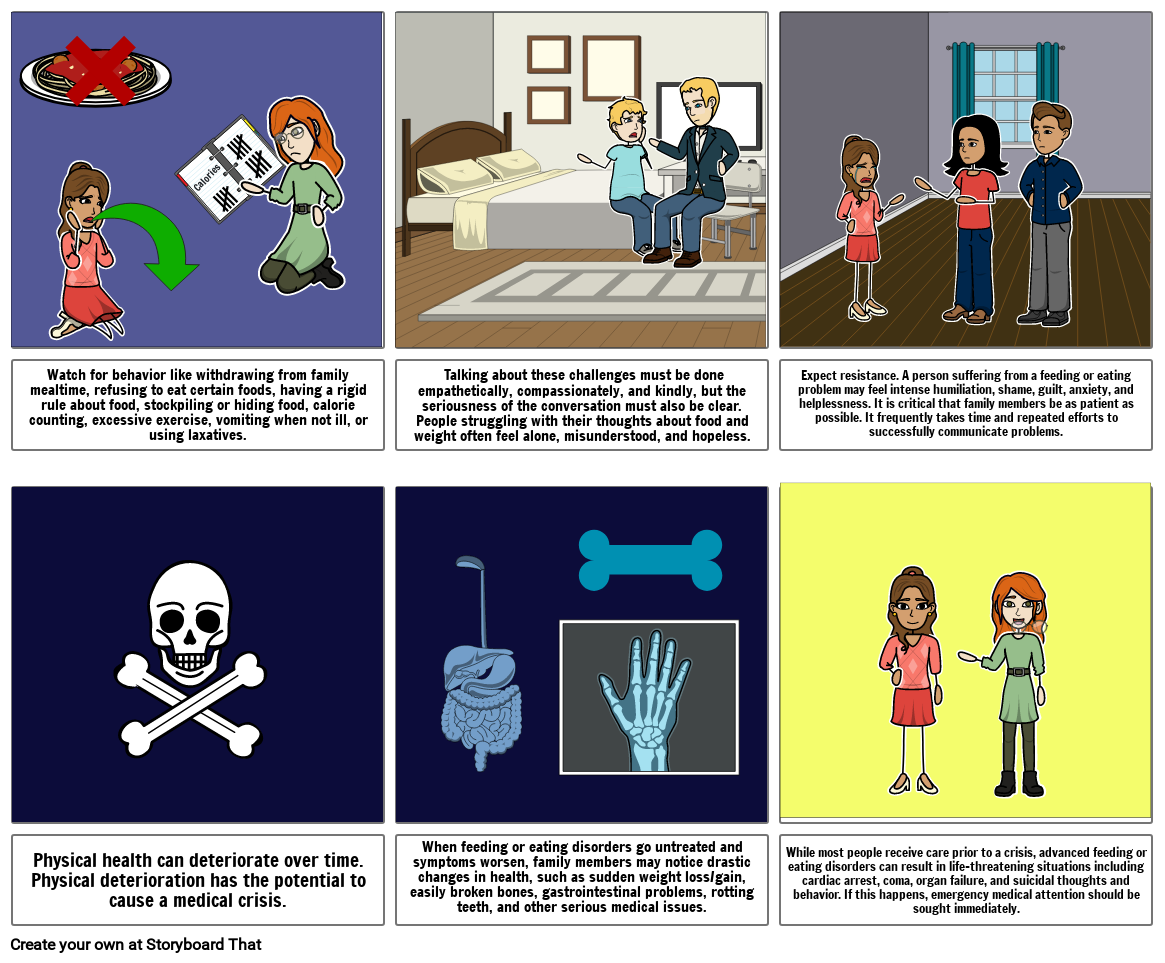Unknown Story

Storyboard Text
- Calories
- Watch for behavior like withdrawing from family mealtime, refusing to eat certain foods, having a rigid rule about food, stockpiling or hiding food, calorie counting, excessive exercise, vomiting when not ill, or using laxatives.
- Talking about these challenges must be done empathetically, compassionately, and kindly, but the seriousness of the conversation must also be clear. People struggling with their thoughts about food and weight often feel alone, misunderstood, and hopeless.
- Expect resistance. A person suffering from a feeding or eatingproblem may feel intense humiliation, shame, guilt, anxiety, and helplessness. It is critical that family members be as patient as possible. It frequently takes time and repeated efforts to successfully communicate problems.
- Physical health can deteriorate over time. Physical deterioration has the potential to cause a medical crisis.
- When feeding or eating disorders go untreated and symptoms worsen, family members may notice drastic changes in health, such as sudden weight loss/gain, easily broken bones, gastrointestinal problems, rotting teeth, and other serious medical issues.
- While most people receive care prior to a crisis, advanced feeding or eating disorders can result in life-threatening situations including cardiac arrest, coma, organ failure, and suicidal thoughts and behavior. If this happens, emergency medical attention should be sought immediately.
Over 30 Million Storyboards Created

